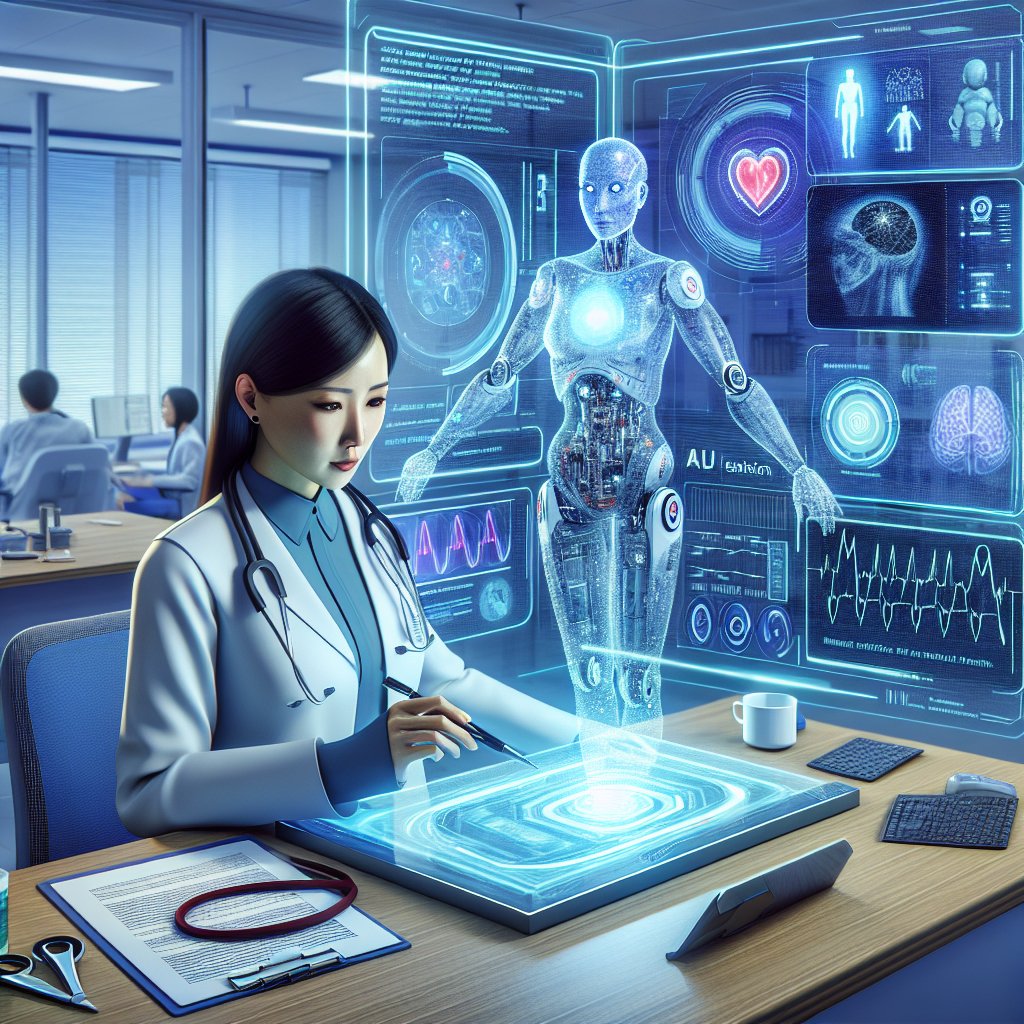The question of whether AI will replace doctors is an increasingly pertinent one as technology advances at an unprecedented pace. Amidst this progression, healthcare stands as a vital domain where AI is poised to bring transformative changes. The potential of artificial intelligence in enhancing diagnostics, personalizing treatment plans, and supporting clinical decisions raises both hopes and concerns about the future role of physicians.
Use of AI for Doctors
The integration of Artificial Intelligence (AI) into the healthcare system has revolutionized the potential of medical treatment and improved the capabilities of doctors worldwide. AI tools and systems offer doctors unparalleled support in diagnosing diseases, personalizing treatment plans, and managing patient data more efficiently. These advanced AI applications not only enhance the accuracy of diagnostics by analyzing medical imaging and laboratory results but also enable doctors to keep abreast of the latest medical research, promising a higher standard of care. As AI continues to evolve, it becomes a vital asset for doctors, aiding them in making more informed decisions and allowing for early intervention in complex health cases.
AI’s influence extends beyond diagnostics; it also has a profound impact on patient-doctor interactions and the overall healthcare experience. Doctors utilize AI-driven chatbots and virtual health assistants to provide constant support and health monitoring, ensuring that patients receive guidance even outside of the clinic. Embracing AI technologies helps doctors streamline their workflows, reduce clinical errors, and allocate more time to direct patient care. This digital transformation within the medical field does not only point to a future of more precise and effective treatments but also highlights the role of AI as an empowering tool for doctors, enabling them to deliver exceptional and personalized healthcare services.
The potential for AI to replace Doctors
The integration of Artificial Intelligence (AI) into the medical field is revolutionizing the way healthcare is delivered. AI’s advanced algorithms and machine learning capabilities are empowering doctors to make more accurate diagnoses, tailor treatments to individual patients, and even predict medical outcomes with higher precision than ever before. As AI technologies continue to evolve, there is growing speculation about the potential of AI not just to assist but potentially to replace doctors in various medical tasks. The debate centers on AI’s capabilities in handling complex data analytics and its potential to undertake routine medical decisions autonomously, reshaping the future of the healthcare profession.
With this monumental shift, patients and medical professionals are keenly observing the transformation of healthcare through AI. The implementation of AI in medicine promises enhanced efficiency, reduced error rates, and the ability to manage vast amounts of patient data effortlessly. However, the contemplation of AI possibly replacing doctors raises critical questions about the balance between human empathy and machine precision, as well as the ethical implications of entrusting life-and-death decisions to artificial systems. As AI continues to carve its niche in healthcare, its impact on the roles and responsibilities of doctors is becoming one of the most important conversations in medical science today.
How does AI assist with medical diagnosis?
Artificial Intelligence (AI) has revolutionized the field of medicine by augmenting the capabilities of healthcare professionals in diagnosing complex conditions. By harnessing the power of advanced algorithms and machine learning, AI systems can analyze vast datasets much more quickly than human physicians, finding patterns and anomalies that might elude even the most experienced practitioners. These intelligent systems can examine medical images, such as X-rays and MRIs, with remarkable precision, highlighting areas of concern and assisting in early detection of diseases such as cancer, which is crucial for effective treatment. Additionally, AI-driven diagnostic tools are increasingly being used to interpret genetic information, predict patient outcomes, and personalize treatment plans, thereby enhancing the accuracy and efficiency of medical diagnosis.
What are the ethical considerations of AI in healthcare?
The integration of Artificial Intelligence (AI) in healthcare has been transformative, offering unparalleled opportunities for improving patient outcomes and optimizing systems. However, this technological evolution brings with it a host of ethical considerations that must be thoroughly examined. One central concern is patient privacy and the security of sensitive health data, as AI systems often require access to vast amounts of personal information to function effectively. Another critical aspect is the potential for inherent biases within AI algorithms, which could lead to unequal treatment of patients based on race, gender, or socioeconomic status. Ethics in healthcare AI also encompass the balance between machine-led decisions and the irreplaceable clinical judgment of human professionals, ensuring that AI supports rather than undermines the patient-physician relationship.
Can AI in medicine improve patient outcomes?
The integration of Artificial Intelligence (AI) in medicine is poised to revolutionize patient care, offering opportunities to enhance diagnostic accuracy, personalize treatment plans, and monitor patient health more effectively. AI algorithms have the potential to analyze vast datasets, recognize complex patterns, and learn from new information, enabling medical professionals to make informed decisions tailored to individual patients. By streamlining workflows and reducing the likelihood of human error, AI systems can help in identifying diseases at an earlier stage and suggest optimal therapeutic approaches, thereby improving patient outcomes significantly.







